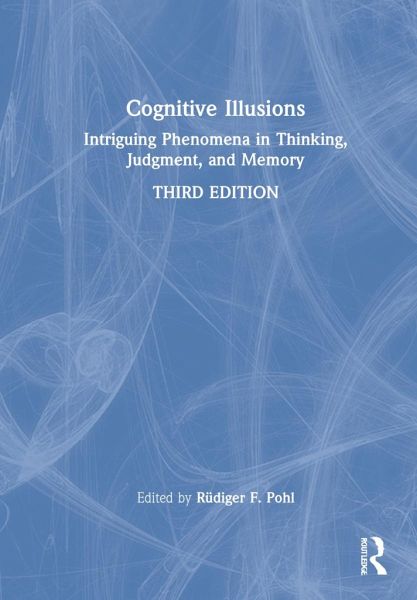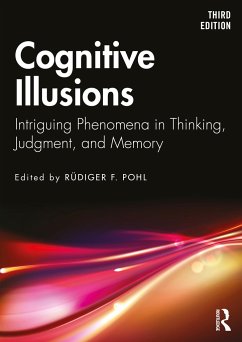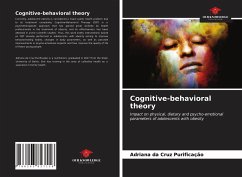
Cognitive Illusions
Intriguing Phenomena in Thinking, Judgment, and Memory
Herausgegeben: Pohl, Rüdiger F

PAYBACK Punkte
69 °P sammeln!
Cognitive Illusions explores a wide range of fascinating psychological effects in the way we think, judge and remember in our everyday lives. In this volume, Rüdiger F. Pohl brings together leading international researchers to define what cognitive illusions are and discuss their theoretical status: are such illusions proof of a faulty human information-processing system, or do they only represent by-products of otherwise adaptive cognitive mechanisms?The book describes and discusses 26 different cognitive illusions, with each chapter giving a profound overview of the respective empirical res...
Cognitive Illusions explores a wide range of fascinating psychological effects in the way we think, judge and remember in our everyday lives. In this volume, Rüdiger F. Pohl brings together leading international researchers to define what cognitive illusions are and discuss their theoretical status: are such illusions proof of a faulty human information-processing system, or do they only represent by-products of otherwise adaptive cognitive mechanisms?
The book describes and discusses 26 different cognitive illusions, with each chapter giving a profound overview of the respective empirical research including potential explanations, individual differences, and relevant applied perspectives. This edition has been thoroughly updated throughout, featuring new chapters on negativity bias, metacognition, and how we respond to fake news, along with detailed descriptions of experiments that can be used as classroom demonstration in every chapter.
Demonstrating just how diverse cognitive illusions can be, it is a must read for all students and researchers of cognitive illusions, specifically, those focusing on thinking, reasoning, decision-making, and memory.
The book describes and discusses 26 different cognitive illusions, with each chapter giving a profound overview of the respective empirical research including potential explanations, individual differences, and relevant applied perspectives. This edition has been thoroughly updated throughout, featuring new chapters on negativity bias, metacognition, and how we respond to fake news, along with detailed descriptions of experiments that can be used as classroom demonstration in every chapter.
Demonstrating just how diverse cognitive illusions can be, it is a must read for all students and researchers of cognitive illusions, specifically, those focusing on thinking, reasoning, decision-making, and memory.














